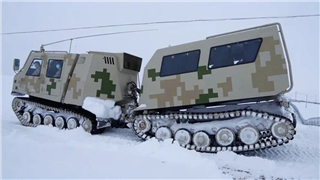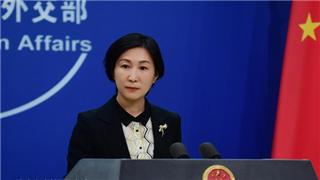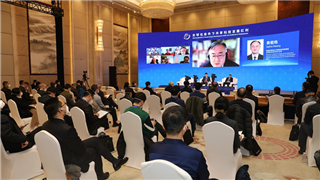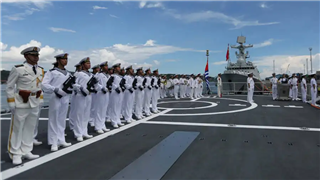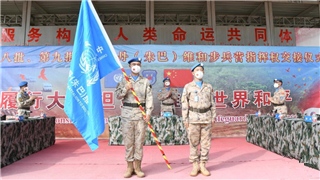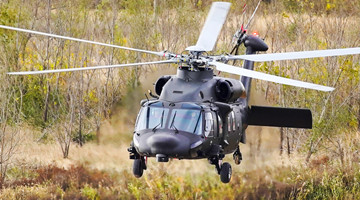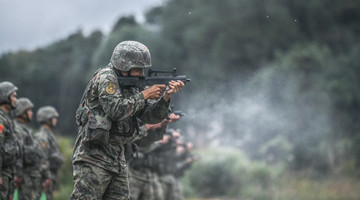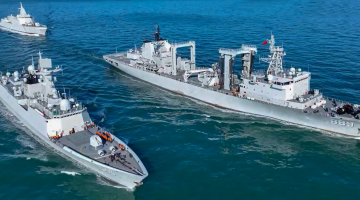By Chang Zhuang, Zhu Hua
The US Space Force on Nov. 22 formally established a unit within the US Indo-Pacific Command, the first formal establishment of a service component in an overseas combatant command. Headquartered in Hawaii, the USSPACEFOR-INDOPAC is planned to be staffed with 125 military and non-military personnel. As an independent service, the US Space Force’s formal assignment and deployment of troops to a theater command reveals Washington’s sinister intention of pushing its so-called “Indo-Pacific strategy” and preserving global hegemony by building superiority in space.
Merging into combat system through accelerated expansion. When the US Space Command was established in 2019, it was specifically defined as a geographical rather than functional organization tasked to command outer space 100km above sea level. Its recent establishment of a component in a theater command means space forces will be put under the latter’s command and play a part as an equal combatant or supportive force with the army, naval, air and cyber forces. Space Forces Indo-Pacific, as a new member to be permanently stationed in the region, will play an important role in supporting US Indo-Pacom’s growing needs for space-based capabilities such as satellite navigation, communications and missile warning, helping army, naval and air forces in the Pacific Ocean control space capabilities, said Gen. David Thompson, vice chief of space operations. Then the US military set up a space branch under the central command on December 2. The Space Force will continue to set up units in US Forces Korea and US European Command, accelerating its pace to fully merge into the combined combat system.
Hyping up major country competition to serve “Indo-Pacific strategy”. The US put forth the so-called “Indo-Pacific strategy” to advance major country competition in recent years. The new national security strategy released in October this year put “promoting a free and open Indo-Pacific region” on top of the regional strategies to “meet the challenges in the decisive decade”, and the new defense strategy released later also called black white by prioritizing the response to the Chinese challenge in the Indo-Pacific. The space system enables the US military to access areas it couldn’t in the past and is vital for overcoming limitations in distance, said Brig. Gen. Anthony Mastalir, Commander of US Space Forces Indo-Pacific. Apparently setting up the USSPACEFOR-INDOPAC is an important step to serve the “Indo-Pacific strategy” and “build a resilient joint force and defense ecosystem”, which will further worsen the regional security situation.
Utilizing and standardizing allies’ space capabilities. In recent years, some of America’s allies have increased their input in developing space military forces as well. The JASDF formed two Space Operations Squadrons, ROK increased its space budget and set up a space operation center, and Australia launched a national space strategy. To better utilize and standardize the allies’ space forces, the US has signed space situational awareness sharing agreements with several countries and entities, as well as remote sensing reconnaissance and missile warning agreements with allies like Japan and ROK. This almost leads to a space NATO. While indulging or even helping some allies to develop space forces, Washington has asked countries like Japan, India, ROK and Australia to participate in its Space Flag, Space Thunder, Black Skies and other exercises, some of which are set in scenarios involving “conflicts in the Indo-Pacific”. The USSPACEFOR-INDOPAC currently has 21 space military operatives, to be staffed with more intelligence and cyber operation personnel in the future. At that time, the new unit will interact more frequently with Indo-Pacific allies and make them serve America’s strategic attempt to form a “space NATO”.
It must be pointed out that America’s space war preparedness and force deployment in the Indo-Pacific seriously counter the general wish for regional security and stability and jeopardize the security situation and peaceful development in the region. Such moves are bound to meet with firm opposition and boycott.
